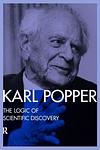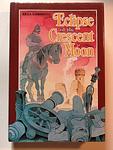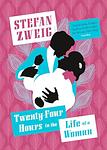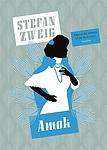The Greatest Hungarian, Austrian Books of All Time
Click to learn how this list is calculated.
This list represents a comprehensive and trusted collection of the greatest books. Developed through a specialized algorithm, it brings together 305 'best of' book lists to form a definitive guide to the world's most acclaimed books. For those interested in how these books are chosen, additional details can be found on the rankings page.
Genres
Countries
Date Range
Reading Statistics
Click the button below to see how many of these books you've read!
Download
If you're interested in downloading this list as a CSV file for use in a spreadsheet application, you can easily do so by clicking the button below. Please note that to ensure a manageable file size and faster download, the CSV will include details for only the first 500 books.
Download-
26. The World Of Yesterday by Stefan Zweig
The book is a poignant memoir reflecting on the transformative events and cultural atmosphere of Europe before World War I, through the interwar years and into the rise of the Nazis. It captures the author's experiences of growing up in a vibrant pre-war Vienna, the intellectual richness and artistic achievements of the time, as well as the profound sense of loss as the world he knew disintegrated into chaos and totalitarianism. With a mix of nostalgia and despair, the narrative serves as a lament for the lost world of European culture and as a warning about the fragility of peace and the human cost of war.
The 1481st Greatest Book of All Time -
27. The Logic of Scientific Discovery by Karl Popper
This book is a significant work in the philosophy of science, proposing a methodology for scientific discovery that challenges traditional inductive reasoning. The author argues that scientific theories can never be proven definitively, but can only be corroborated or falsified through empirical testing. He introduces the concept of falsifiability as the key criterion for distinguishing scientific theories from non-scientific ones. The book also delves into the problems of induction, demarcation, and the relationship between theory and observation in scientific practice.
The 1525th Greatest Book of All Time -
28. Eclipse of the Crescent Moon by Géza Gárdonyi
"Eclipse of the Crescent Moon" is a historical novel set in the 16th century, during the time of the Ottoman Empire's siege on the Hungarian fortress of Eger. The story follows a brave young boy named Gergely, who grows up to be a heroic soldier defending his homeland. The tale is filled with romance, adventure, and provides a detailed depiction of medieval life, warfare, and the heroic resistance of the Hungarian people against the invading Ottoman forces.
The 1554th Greatest Book of All Time -
29. Fool's Gold by Máro Doýka
"Fool's Gold" is a compelling story about a man who, after a series of unfortunate events, finds himself in a small town in the mountains, where he discovers an abandoned gold mine. As he delves deeper into the mine, he uncovers not only gold but also the town's dark secrets and hidden past. As he navigates through the mine, he also navigates through his past, learning about himself and what truly matters in life. The book is a captivating exploration of human nature, greed, and the lengths people will go to for wealth.
The 1675th Greatest Book of All Time -
30. Concrete by Thomas Bernhard
The book is a darkly introspective narrative that delves into the mind of a reclusive, obsessive intellectual who is struggling to complete his scholarly work on the composer Mendelssohn. As he grapples with his own ailments and the perceived mediocrity of his surroundings, the protagonist's stream-of-consciousness monologue reveals his deep-seated anxieties, self-loathing, and profound isolation. The narrative is a relentless examination of the protagonist's psyche, showcasing his critical view of society and his own personal relationships, which are fraught with tension and dysfunction. Through this, the novel explores themes of artistic creation, intellectual elitism, and the suffocating nature of expectations and familial obligations.
The 1733rd Greatest Book of All Time -
31. Woodcutters by Thomas Bernhard
Woodcutters is a darkly humorous critique of Vienna's artistic elite. The story takes place over the course of a single evening, as the narrator attends a dinner party in honor of a recently successful actor. As the evening progresses, he reflects on the pretentiousness and hypocrisy of the guests, the mediocrity of their artistic achievements, and the tragic suicide of his former lover. The novel is a scathing indictment of the vanity and self-delusion of the artistic community.
The 1741st Greatest Book of All Time -
32. The Uses of Enchantment by Bruno Bettelheim
"The Uses of Enchantment" is a psychological analysis of fairy tales and their importance in childhood development. The book argues that these stories allow children to navigate their emotions and understand aspects of life they are yet to experience. By exploring various themes, such as separation anxiety, oedipal conflict, and sibling rivalry, through well-known fairy tales, the author demonstrates how these narratives contribute to a child's moral education and understanding of the human nature.
The 1777th Greatest Book of All Time -
33. On Aggression by Konrad Lorenz
"On Aggression" is a scientific study that explores the concept of aggression in both animals and humans from an ethological (study of animal behavior) perspective. The author argues that aggression is an innate and necessary instinct that has helped species survive and evolve. However, he also emphasizes that this instinct, when unchecked or misdirected, can lead to destructive behavior and violence. The book provides a comprehensive analysis of the biological roots of aggression, its role in the evolution and survival of species, and its implications for human society.
The 1814th Greatest Book of All Time -
34. Twenty Four Hours In The Life Of A Woman by Stefan Zweig
The novella delves into the intense emotional landscape of a middle-aged English widow who, while staying at a Riviera resort, becomes deeply fascinated by the plight of a young man consumed by a gambling addiction. Over the course of a day, their lives intertwine, leading her to reflect on the nature of obsession and the fleeting moments of passion that can irrevocably alter one's life. As she recounts her own story of moral and emotional upheaval, the narrative explores themes of societal expectations, personal liberation, and the profound impact of ephemeral encounters.
The 1822nd Greatest Book of All Time -
35. Seven Years in Tibet by Heinrich Harrer
This book is a travel memoir that recounts the author's escape from a British internment camp in India during World War II and his subsequent journey through the Himalayas to Tibet, where he becomes a tutor and friend to the Dalai Lama. The book provides a detailed account of Tibetan culture, customs, and the political turmoil leading up to the Chinese invasion, as seen through the eyes of a foreigner who spent seven years living there.
The 1828th Greatest Book of All Time -
36. Édes Anna by Dezső Kosztolányi
"Édes Anna" is a novel that revolves around the life of a young servant girl, Anna, who works for a bourgeois family in early 20th century Hungary. The narrative explores Anna's experiences of exploitation, abuse, and societal oppression. As she navigates her way through life, her innocence and naivety are gradually eroded, leading her to commit an act of violent rebellion. The book is a potent critique of class and gender inequalities of the time.
The 1918th Greatest Book of All Time -
37. The Wall by Marlen Haushofer
The book is a profound exploration of isolation and survival, following a woman who finds herself unexpectedly cut off from the rest of the world by an invisible, impenetrable wall. With the rest of humanity seemingly vanished, she must come to terms with her solitary existence in a remote forested area, accompanied only by a few animals. As she adapts to her new reality, tending to the land and the creatures that become her companions, the narrative delves into themes of self-reliance, the intrinsic connection between humans and nature, and the resilience of the human spirit in the face of unimaginable circumstances. Through her introspective journey, the protagonist examines the essence of her being and the meaning of life when stripped of society and its constructs.
The 1938th Greatest Book of All Time -
38. Indian Summer by Adalbert Stifter
"Indian Summer" is a romantic novel set in the 19th century that narrates the story of a young man who falls in love with a woman, only to discover that she is his biological sister. The novel is a detailed exploration of the protagonist's emotional turmoil as he grapples with his feelings. The story also delves into the themes of nature, beauty, and art, with vivid descriptions of landscapes and the changing seasons. The narrative is a blend of realism and poetic symbolism, reflecting the author's philosophical insights into the human condition.
The 1981st Greatest Book of All Time -
39. Confusion by Stefan Zweig
"Confusion" is a compelling narrative that explores the intense and passionate relationship between a student and his charismatic professor. Set in the early 20th century, the story unfolds as the protagonist becomes entangled in the professor's personal life, discovering his mentor's secret past, his struggling marriage, and his hidden homosexual desires. The book presents a profound exploration of human emotions, identity, and the complexities of love, against the backdrop of the societal norms of the time.
The 2016th Greatest Book of All Time -
40. What Is Life? by Erwin Schrödinger
"What is Life?" is a scientific exploration that delves into the intersection of physics and biology. The book presents the idea that life, at its most basic level, operates according to the laws of physics and chemistry. It introduces the concept of an "aperiodic crystal" that contains genetic information in its configuration of covalent chemical bonds, which later inspired the discovery of the structure of DNA. The book also discusses entropy and negentropy, suggesting that life feeds on negentropy to counteract the natural process of increasing entropy.
The 2031st Greatest Book of All Time -
41. King Solomon's Ring by Konrad Lorenz
This book is a fascinating exploration of animal behavior by a renowned zoologist. It delves into the author's personal experiences and observations of animals in their natural habitats, focusing particularly on birds, dogs, and jackdaws. The author uses these observations to draw conclusions about animal psychology and behavior, often comparing it to human behavior. The book is named after the biblical King Solomon, who was said to have a ring that allowed him to understand the language of animals.
The 2046th Greatest Book of All Time -
42. The Melancholy of Resistance by László Krasznahorkai
"The Melancholy of Resistance" is a surreal and philosophical novel set in a small Hungarian town that becomes isolated by a massive snowstorm. The arrival of a mysterious circus, featuring a stuffed whale and a silent, enigmatic leader, brings with it a wave of change and unrest. The narrative explores themes of chaos, resistance, and the struggle for power through the perspectives of various townsfolk, including a reclusive music theorist and a former political dissident. The novel is known for its complex, long-winded sentences and its bleak yet profound examination of human nature and society.
The 2102nd Greatest Book of All Time -
43. Beware Of Pity by Stefan Zweig
The novel explores the complex emotions and consequences that arise when a young lieutenant, succumbing to societal pressure, feigns romantic interest in a disabled young woman. His pity-driven actions lead to an entanglement of obligation, guilt, and false hope, ultimately culminating in a tragic series of events. Set against the backdrop of the Austro-Hungarian Empire on the brink of World War I, the story delves into the psychological depths of its characters, examining the moral dilemmas and the devastating impact of pity when it is mistaken for love.
The 2111th Greatest Book of All Time -
44. Celestial Harmonies by Peter Esterhazy
"Celestial Harmonies" is a historical novel that tells the story of the aristocratic Esterházy family, tracing their lineage from the late Middle Ages to the present day. The narrative is divided into two parts, with the first part featuring a series of vignettes about the family's ancestors, while the second part focuses on the experiences of the narrator's father under the Communist regime in Hungary. The novel is characterized by its intricate structure, complex themes, and lush, poetic language, offering a rich exploration of Hungarian history, family dynamics, and the human condition.
The 2369th Greatest Book of All Time -
45. The Door by Szabó, Magda
"The Door" by Magda Szabo is a novel about the relationship between two women, one of whom is a writer and the other is her housekeeper. The story explores themes of class, power, and the complexities of human relationships. As the two women become increasingly intertwined, their relationship becomes more and more complicated, leading to unexpected consequences for both of them. The novel is a powerful exploration of the human condition, and a poignant reminder of the importance of understanding and empathy in our interactions with others.
The 2379th Greatest Book of All Time -
46. The Tao of Physics by Fritjof Capra
The book explores the parallels between modern physics and eastern mysticism. It draws connections between quantum mechanics, relativity theory and concepts in Hinduism, Buddhism, Taoism, and Zen. The author argues that the two seemingly disparate areas of study - physics and mysticism - both seek to understand the fundamental nature of the universe and that they do so in strikingly similar ways. The book challenges conventional thinking and encourages readers to see the world from a more holistic, interconnected perspective.
The 2434th Greatest Book of All Time -
47. Amok by Stefan Zweig
"Amok" is a novella that delves into the mind of a European doctor, who, while working in the Dutch East Indies, becomes obsessed with a wealthy and married female patient. The doctor's fixation spirals into a dangerous and self-destructive passion after she asks him to perform an illegal abortion. The story is a psychological exploration of obsession, guilt, and moral boundaries, told through the doctor's confession to a stranger during a ship journey.
The 2443rd Greatest Book of All Time -
48. The Guiltless by Hermann Broch
"The Guiltless" is a novel that explores the disintegration of values and the rise of fascism in Germany between the two World Wars. It follows the lives of several characters, including a businessman, a musician, and a murderer, whose stories intertwine to paint a picture of a society in moral and social decline. The narrative delves into their personal struggles and moral dilemmas, reflecting the broader societal issues of the time and offering a critique of the political climate that allowed for the rise of totalitarian regimes.
The 2443rd Greatest Book of All Time -
49. None but the Brave by Arthur Schnitzler
"None but the Brave" is a novel that explores the complexities of human emotions, relationships, and social norms in the early 20th century. The story follows a group of middle-class Austrians whose comfortable lives are disrupted when they become entangled in a series of romantic and sexual affairs. The narrative delves into their individual struggles, their moral dilemmas, and the societal expectations that they grapple with. The book is a profound examination of the human condition, highlighting the courage it takes to face one's desires and fears.
The 2443rd Greatest Book of All Time -
50. The Case Worker by György Konrád
"The Case Worker" is a novel that follows the life of a young, disillusioned social worker in Hungary who is struggling with the grim realities of his job. He is constantly faced with the harsh and desperate situations of his clients, which include the poor, the mentally ill, and the elderly. As he tries to help them, he becomes increasingly aware of the bureaucratic and social systems that often hinder rather than aid these vulnerable individuals. This leads him to question the effectiveness of his role and the larger societal structures in place.
The 2443rd Greatest Book of All Time
Reading Statistics
Click the button below to see how many of these books you've read!
Download
If you're interested in downloading this list as a CSV file for use in a spreadsheet application, you can easily do so by clicking the button below. Please note that to ensure a manageable file size and faster download, the CSV will include details for only the first 500 books.
Download






















